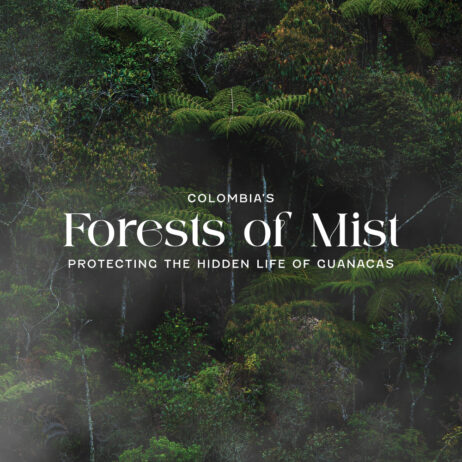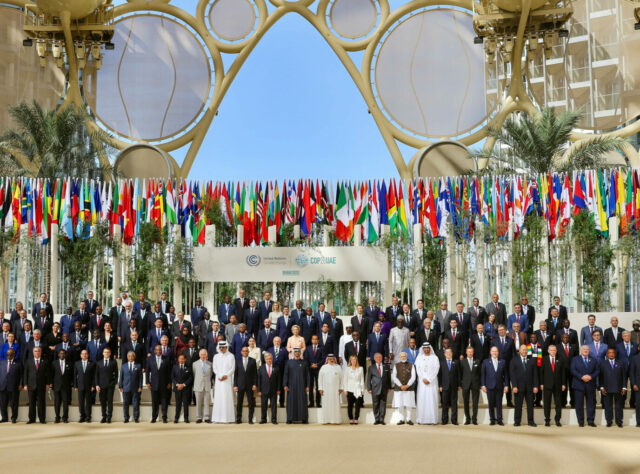
Earlier this month, world Heads of States gathered in Dubai, United Arab Emirates (UAE) for the 28th annual UN Conference of the Parties (COP28) to the UN Framework for Convention on Climate Change (UNFCCC). Credit: COP28 / Mahmoud Khaled
By Dr Catherine Barnard World Land Trust CEO
As the 28th UN Conference of the Parties (COP28) has now drawn to a close we see that there have been some victories for the protection of nature. But, once again, the meeting has not delivered the scale of action we so critically need. With the planet on the brink of an ecological tipping point, the decisions made at this summit will ripple across generations. Nations must rapidly phase-out the use of fossil fuels and prioritise nature-based solutions that not only combat carbon emissions but also safeguard the rich biodiversity crucial for the planet’s health.
Hope for nature-based solutions
Those of us committed to conservation know the importance of prioritising nature-based solutions. All scientific models showing the path to staying below 1.5C are based on keeping natural carbon sinks such as forests, wetlands, and peatlands. As Earth’s marine and terrestrial ecosystems absorb an incredible 56% of the carbon emitted by burning fossil fuels, nature’s role in combatting the climate crisis cannot be overstated.
The importance of the interdependences between climate and nature was confirmed at COP28’s Nature, Land Use and Ocean Day and World Climate Action Summit (WCAS). With China joining the ‘High Ambition Coalition for Nature and People and the 30×30 target to protect at least 30% of the planet’s land and ocean by 2030 spotlighted as the most pivotal biodiversity goal to combat climate change. COP28’s joint statement on climate, nature and people also promised to increase investment for ecosystem-based approaches.
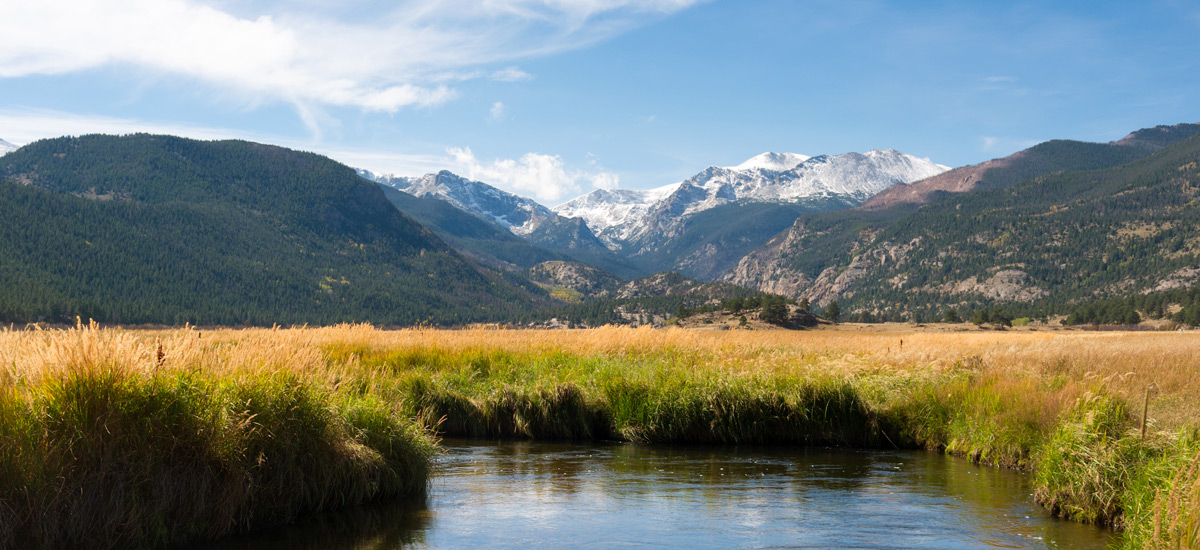
Upholding the goal to protect at least 30% of Earth’s natural ecosystems is pivotal to combatting manmade climate change. Credit: Frank Schulenburg/ UCSUSA
The support gained on the day for movements such as COP27’s Mangrove Alliance for Climate (MAC) highlights how ecosystems are not only essential for wildlife but provide protections from devastating climate change impacts like coastal flooding. Projects such as WLT partner Wildlife Trust of India’s Mangrove Conservation Hub project in Kerala show the direct benefits of such action. The momentum gained from the support at COP28 will help achieve MAC’s Mangrove Breakthrough goal of restoring and protecting 15 million hectares of mangroves globally.
We were also given hope for the voices of those most affected by the climate crisis. We know through our engagement with local communities in all WLT projects that these voices are central to the success of all conservation and their contribution must be recognised. With inclusive representation from indigenous peoples, local communities, women, girls, youth, and other vulnerable groups, this is a transformative step in recognising land rights and respecting traditional knowledge.
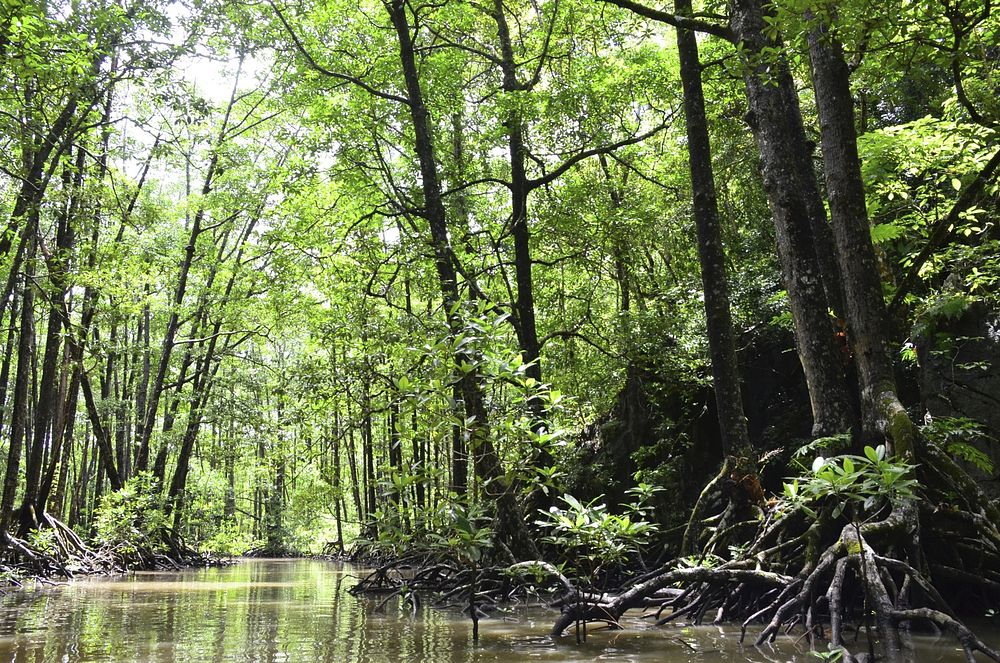
Natural ecosystems such as these mangrove forests provide invaluable coastal flood defence and have been promised more protection and finance at COP28’s Nature Day. Credit: rawpixel.com
Promises must be followed through with swift and effective action
However, the clear scientific evidence for the urgency for immediate action often clashes with bureaucratic processes which prevent precise decision-making – not to mention the enormous carbon costs of tens of thousands of people attending. Progress has indeed been made with 51 oil companies agreeing to decarbonisation targets and 119 countries (including the UK) pledging to triple global renewable energy by 2030. However, despite COP28 striking a deal to transition away from fossil fuels, the terms are weak, uncertain and contain many loopholes – not to mention that this recognition is several decades too late. It seems the presence of a record number of fuel lobbyists (2,456), at the conference hosted by one of the largest polluting countries in the world, just symbolises why we can’t expect this process to deliver what we need as society.
Campaigners say these spaces remain “fundamentally colonial” and profit is being prioritised over frontline communities and a sustainable planet, and the commitments made at COP28 would seem to support such claims. The creation of a Loss and Damage Fund, while a positive step in holding nations accountable for their impact, pledges only $712 million (£560 million )- that’s only 0.2% of what is needed each year. To highlight how far adrift priorities are: the $260 million (£205 million) annual earnings of footballer Cristiano Ronaldo far outweigh the amount any country has committed to the fund. The £60 million pledged by the UK is also not additional but taken from the recently downgraded Official Development Assistance climate finance pledge. In comparison, global subsidies for oil, gas, and coal in 2022 were £5.5 trillion. In fact, simply redirecting the £351 billion given by G20 countries to already profitable fossil fuel companies would more than cover the Loss and Damage Fund. Do these figures show that developed nations are truly treating the issue of climate justice with the importance it requires?
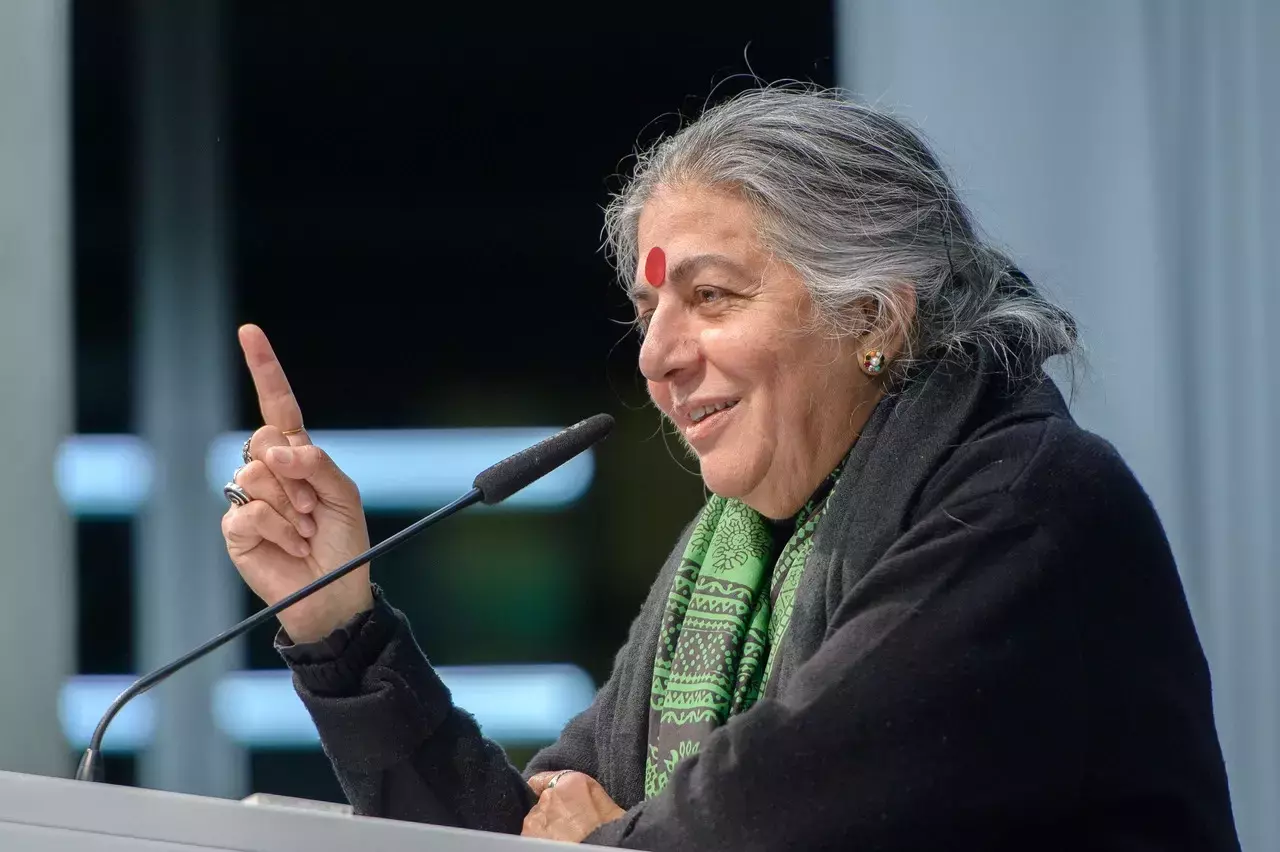
Campaigners say these talks must centre the voices of Indigenous peoples, local communities, women, girls, and youth to achieve climate justice. Pictured: world-renowned ecofeminist Vandana Shiva. Credit: Stephan Röhl/Flickr
Now is the time for ambitious commitment and leadership
I believe that after 28 COPs, leaders still haven’t grasped the urgency of the situation, and that the whole COP process and associated jamboree is simply not fit for purpose. We need systemic change across the whole of society to address the most existential crisis we’ve faced in our species’ history. Each year we are told positive assurances on the way forward, yet every time the tangible changes fall far short. This is evident from COP26’s Pledge to End Deforestation by 2030, which saw more than 140 countries agree to halt and reverse forest loss by the end of the decade. Yet, according to the annual Forest Declaration Assessment report, worldwide deforestation increased in 2022. The weak language and numerous loopholes in the COP28 statement do nothing to convince me that this year will be any different.
Closer to home, the UK government promisingly confirmed that illegal deforestation will no longer be part of the supply chain of supermarket essentials. However, as crucial biodiversity hotspots such as the tropical savannahs of Brazil are being decimated completely legally for animal feed cultivation, it is simply not enough. The UK’s recent commitment to new oil and gas developments in the North Sea and the rollback of measures to reach net zero also show the unacceptable backwards steps our nation is taking away from showing true climate leadership. Having previously been a global leader in tackling climate change, the UK is now on track to miss the 2030 target pledged at COP26.
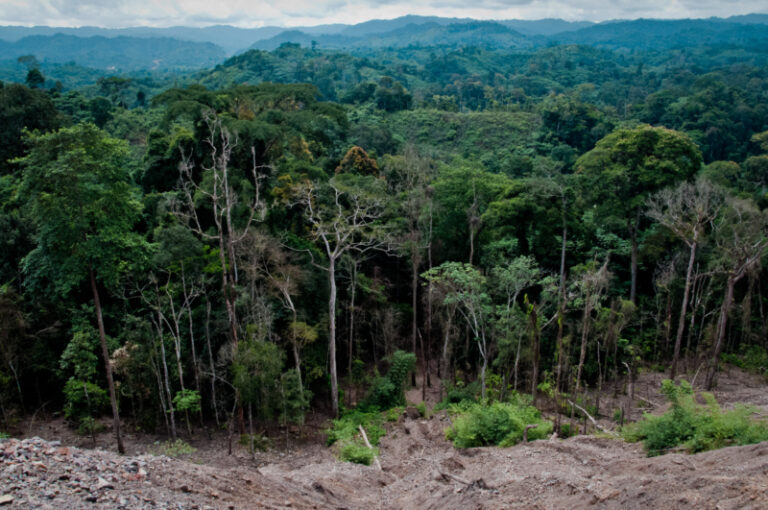
Forest absorbs 30% of carbon emissions from burning fossil fuels and contain the vast majority of land-based biodiversity, yet deforestation is an ever-growing threat. Credit: Bohumil Cap/Flickr
What can we as individuals do?
While steps have been made at COP28, they are just that – steps, and small ones at that. When what we need is radical systemic global change, and it is clear that the COP process has once again failed to deliver this. So, as individuals and organisations we must focus on collaborating to achieve as much as we can now until our global leaders can step up to the challenge. Which brings us to why what WLT and our partners do is so vital – saving land, saving species, storing carbon, helping people. By coming together as a partnership of citizens and organisations around the world we can replicate and scale up the work that we already do, a model that we know works. Individually, we are small in comparison to nations, but our networks are vast. Our collective impact can provide hope for a habitable planet in the future, for us and those species we share the planet with.
